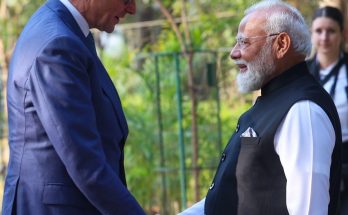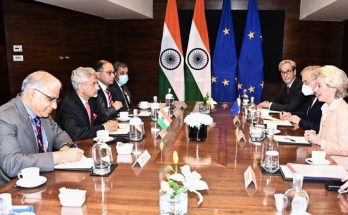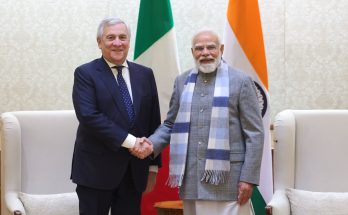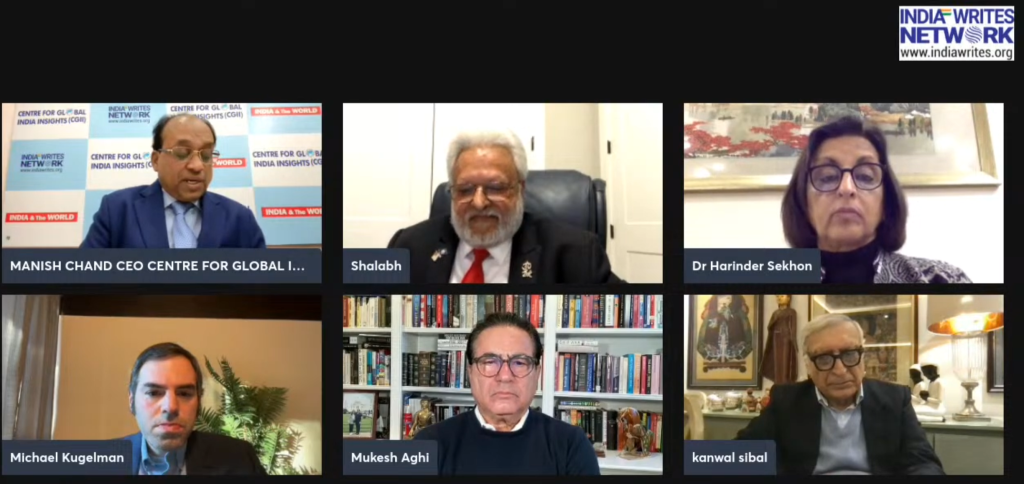
By Shweta Aggarwal
Amid concerns about potential disruptions during the second presidency of Donald Trump, eminent diplomats and experts have expressed optimism about an upswing in in economic, defence and strategic ties between India and the US under the new administration in Washington, and underlined the importance of proactive cooperation to bridge differences over trade tariffs and H1B visa.
Participating in an online conference, titled “The Trump Card: India’s Choices & Strategy,” Mukesh Aghi, President and CEO of the US-India Strategic Partnership Forum, pitched for fast-tracking negotiations for a bilateral Free Trade Agreement (FTA) and batted for an intra-Quad FTA.
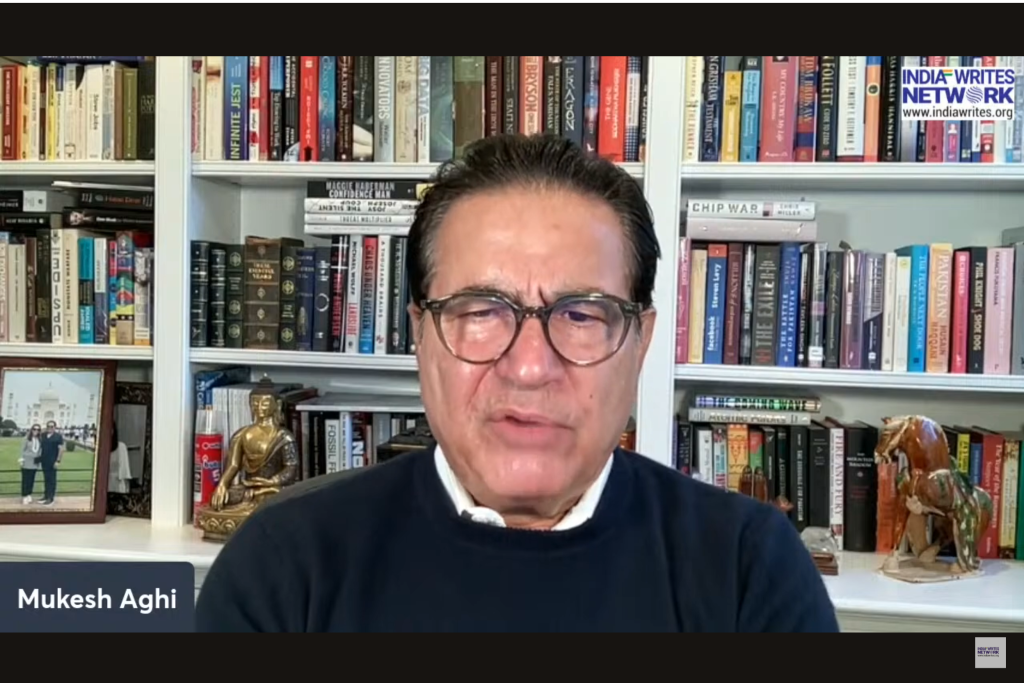 India should “take a very proactive role” in driving this process forward and leverage its position within the Quad, Mr Aghi said at an interactive online conference, titled “The Trump Card: India’s Choices & Strategy” on January 15. “If you don’t want a direct trade agreement, let’s focus on doing an FTA between the four Quad countries and create a common market,” he said. He argued that this strategy would allow India to tap into the combined economic strength of the Quad, estimated at $35 trillion, creating a powerful bloc to drive mutual growth and resilience against external challenges. Mr Aghi’s comments came ahead of the first meeting of the foreign ministers of Quad countries in Washington on January 21.
India should “take a very proactive role” in driving this process forward and leverage its position within the Quad, Mr Aghi said at an interactive online conference, titled “The Trump Card: India’s Choices & Strategy” on January 15. “If you don’t want a direct trade agreement, let’s focus on doing an FTA between the four Quad countries and create a common market,” he said. He argued that this strategy would allow India to tap into the combined economic strength of the Quad, estimated at $35 trillion, creating a powerful bloc to drive mutual growth and resilience against external challenges. Mr Aghi’s comments came ahead of the first meeting of the foreign ministers of Quad countries in Washington on January 21.
“For India, this (FAT) presents an opportunity to attract investments from US companies seeking alternatives to Chinese manufacturing hubs. Success stories like Apple’s expansion in India exemplify how targeted policies can encourage foreign direct investment,” he said.
Mr Aghi recommended that India should proactively engage with the Trump administration to emphasize mutual benefits of skilled migration. Highlighting the economic contributions of Indian Americans, who represent 1.5% of the US population yet contribute 6% to its GDP, can strengthen India’s case, he said.
“The new Trump administration must hit the proverbial ground running, clear-eyed, motivated, prepared, with proper and focused management, U.S. and India could have, a free trade bilateral agreement by the end of 2027,” said Mr Shalabh Kumar, a Chicago-based Indian-American industrialist and a leading donor to the Trump campaign.
The conference, organised by Centre for Global India Insights, a leading think tank focused on global affairs, explored the ramifications of the Trump presidency on various facets of the India-US strategic partnership. The speakers the conference included: Amb. (Retd.) Kanwal Sibal, Chancellor JNU, former foreign secretary, India; Mukesh Aghi, President & CEO, US-India Strategic Partnership Forum (USISPF); Shalabh Kumar, Chicago-based US Industrialist and National Chair of Indian & Hindu American Coalitions for the Republican Party; Vivek Lall, Chief Executive, General Atomics Global Corporation; Manish Chand, CEO, Centre for Global India Insights; Michael Kugelman, South Asia Institute, Wilson Centre, US; and Dr Harinder Sekhon, Author & expert.
“Given personal chemistry between Prime Minister Narendra Modi and President-elect Trump, one can expect the India-US strategic partnership to scale new heights under the Trump 2.0 presidency,” said Mr Chand.
“While in some regions such as Europe and the Middle East and Latin America, the Trump anxiety is more pronounced, in India the US President-elect continues to enjoy a high degree of approval,” said Mr Chand, a foreign policy analyst and editor, “India’s G20 Legacy: Shaping a New World Order.”
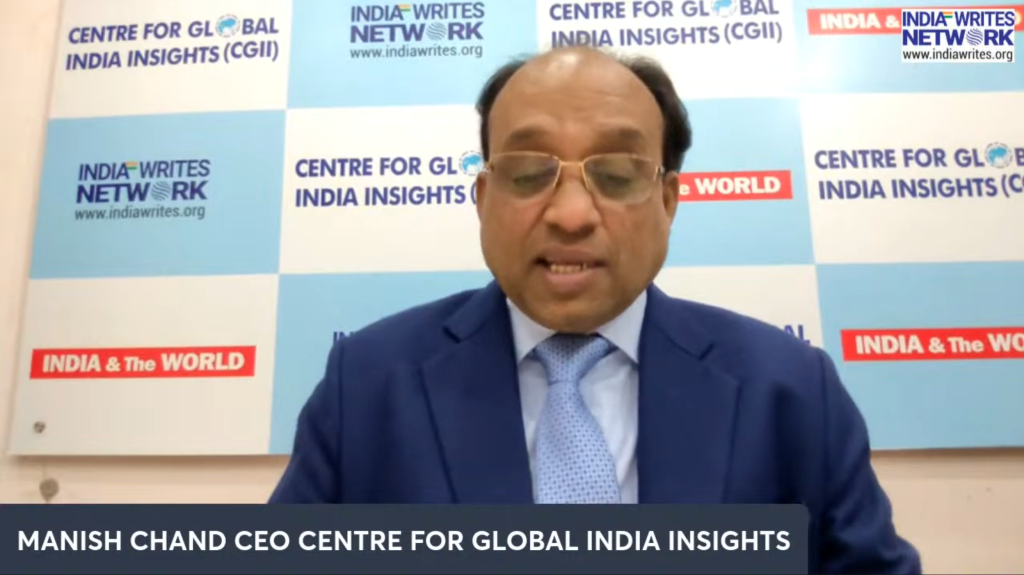 “However, there is likely to be potential disruptions in areas of trade tariffs and H1B visa. The friction generated by these two contentious issues will require nimble diplomacy by both sides and deft handling by Prime Minister Narendra Modi,” said Mr Chand.
“However, there is likely to be potential disruptions in areas of trade tariffs and H1B visa. The friction generated by these two contentious issues will require nimble diplomacy by both sides and deft handling by Prime Minister Narendra Modi,” said Mr Chand.
Along with a rise in trade and investment, Mr Vivek Lal, CEO, General Atomic, a leading US company that is manufacturing drones for India, also struck an upbeat note on the shape of India-US defence relations under Trump 2.0.
“The U.S.-India defence corridor will continue to grow,” he said while highlighting growing collaboration between defence start-ups in days to come. Arguing for the need to have a real-time common operating picture, Mr Lall said: “In the months and years ahead we will see a lot more integration in terms of systems to provide that common operating picture to like-minded allies.”
The China Factor
Going forward, the shared threat from China will be an important factor driving India-US collaboration under Trump 2.0. Mr Kumar described China as “an existential threat for both the US and India” and called for closer India-US collaboration. “America and India have a clear interest in countering China’s plan to change the international order by 2049. Their economic and national security interests demand so,” he said.
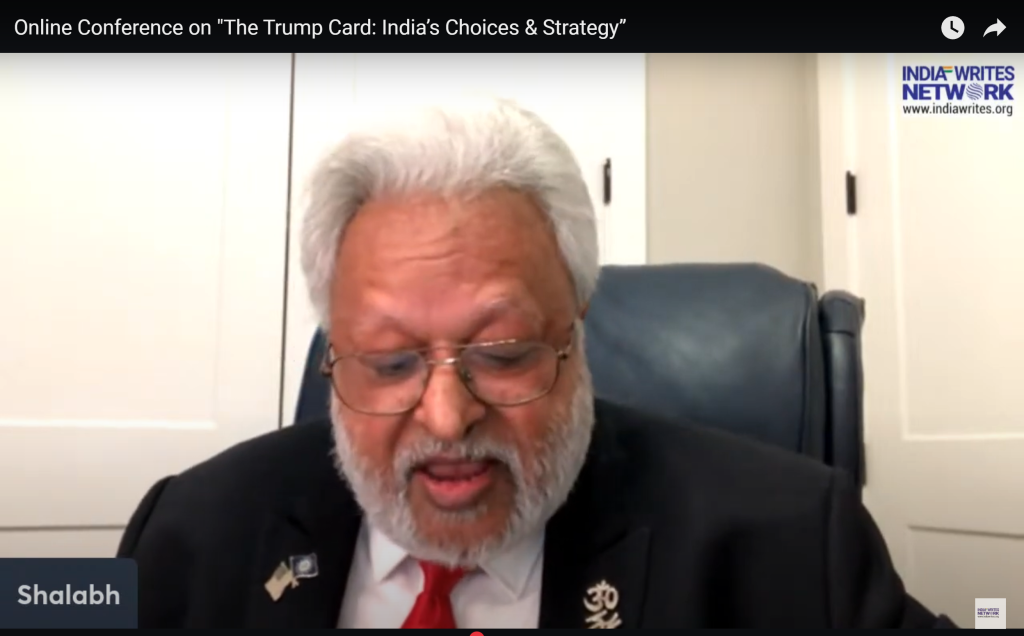 Underlining that China’s growing influence across South Asia is as part of a broader plan to encircle India and expand its geopolitical reach, he described the US and India as “natural allies” in countering China’s rise. He argues that the strategic convergence of interests between India and the US in the Indo-Pacific will be vital for maintaining a balance of power.
Underlining that China’s growing influence across South Asia is as part of a broader plan to encircle India and expand its geopolitical reach, he described the US and India as “natural allies” in countering China’s rise. He argues that the strategic convergence of interests between India and the US in the Indo-Pacific will be vital for maintaining a balance of power.
While acknowledging the strategic benefits of the US-India partnership in countering China’s rise, Sibal cautioned that India could not rely solely on the US in its dealings with China, particularly on territorial disputes. “We have to keep this dialogue with China open,” he emphasized, underscoring the need for diplomatic engagement even as India strengthened its ties with the US.
He added, “The US was trying its best to deny China access to advanced technologies, which was helpful to India as it slowed China’s rise. But India had to be cautious in how far it aligned with the US’s anti-China policy, given China was its immediate neighbor and territorial issues lay outside US involvement.”
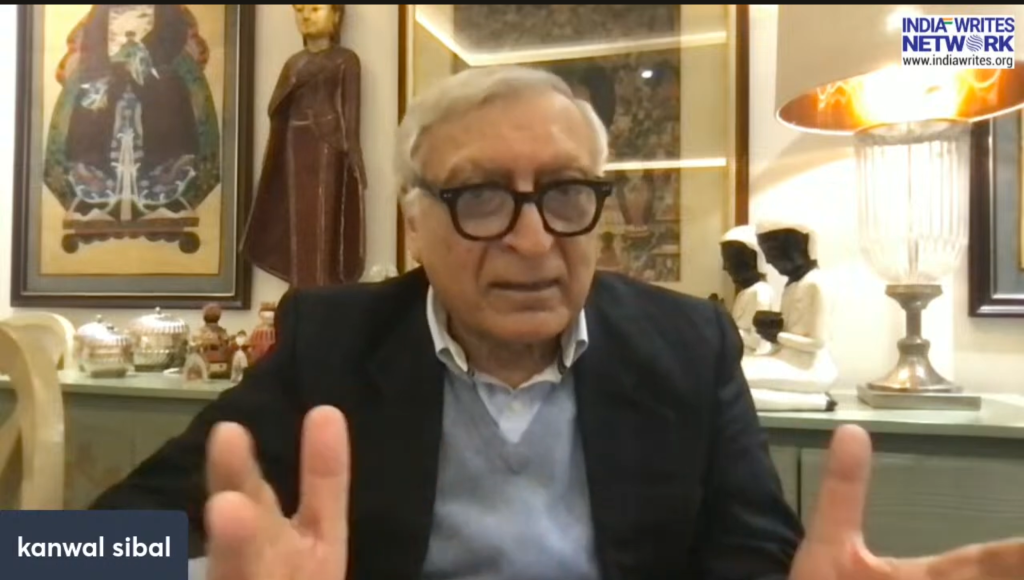
Mr Sibal emphasized the unpredictability of Trump’s foreign policy, which he warned could disrupt international norms and challenge traditional power structures. He pointed to Trump’s provocative actions, such as claiming territories like Canada, Greenland, and the Panama Canal, as examples of a broader shift in US diplomacy. “Big powers can pursue their vision of their national self-interest by discarding what are accepted as norms of international diplomacy,” he stated, warning that such a shift could embolden China and Russia to pursue their own territorial ambitions. He noted that these actions might justify China’s aggressive stance in the South China Sea and Taiwan, as well as Russia’s actions in Ukraine.
Kugelman predicted a continuity in the US Indo-Pacific strategy under Trump 2.0 and argued that it will align “with India’s own strategic interests in South Asia, particularly when it comes to the idea of working with partners to counter China and its growing presence and influence in the region.” The focus will be on trying to give countries better alternatives to what China is doing, he said.
“Going forward, the Indo-Pacific policy and relations between the Quad partners are going to see an uptick and a greater role for regional stakeholders,” said Sekhon.
Author Profile
- India Writes Network (www.indiawrites.org) is an emerging think tank and a media-publishing company focused on international affairs & the India Story. Centre for Global India Insights is the research arm of India Writes Network. To subscribe to India and the World, write to editor@indiawrites.org. A venture of TGII Media Private Limited, a leading media, publishing and consultancy company, IWN has carved a niche for balanced and exhaustive reporting and analysis of international affairs. Eminent personalities, politicians, diplomats, authors, strategy gurus and news-makers have contributed to India Writes Network, as also “India and the World,” a magazine focused on global affairs.
Latest entries
 DiplomacyJanuary 5, 2026India walks diplomatic tightrope over US operation in Venezuela
DiplomacyJanuary 5, 2026India walks diplomatic tightrope over US operation in Venezuela India and the WorldNovember 26, 2025G20@20: Africa’s Moment – The Once and Future World Order
India and the WorldNovember 26, 2025G20@20: Africa’s Moment – The Once and Future World Order DiplomacyOctober 4, 2025UNGA Resolution 2758 Must Not Be Distorted, One-China Principle Brooks No Challenge
DiplomacyOctober 4, 2025UNGA Resolution 2758 Must Not Be Distorted, One-China Principle Brooks No Challenge India and the WorldJuly 26, 2025MPs, diplomats laud Operation Sindoor, call for national unity to combat Pakistan-sponsored terror
India and the WorldJuly 26, 2025MPs, diplomats laud Operation Sindoor, call for national unity to combat Pakistan-sponsored terror





